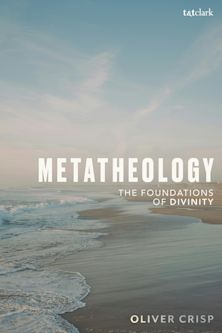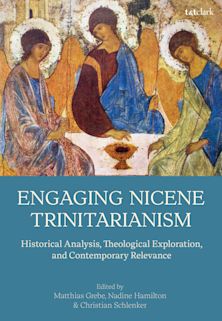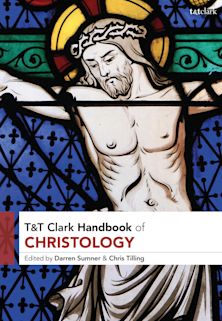- Home
- ACADEMIC
- Theology
- Systematic Theology
- Divine Simplicity
You must sign in to add this item to your wishlist. Please sign in or create an account
Description
Steven J. Duby examines the doctrine of divine simplicity. This discussion is centered around the three distinguishing features: grounding in biblical exegesis, use of Thomas Aquinas and the Reformed Orthodox; and the writings of modern systematic and philosophical theologians.
Duby outlines the general history of the Christian doctrine of divine simplicity and discusses the methodological traits and essential contents of the dogmatic account. He substantiates the claims of the doctrine of divine simplicity by demonstrating that they are implied and required by the scriptural account of God. Duby considers how simplicity is inferred from God's singularity and aseity, as well as how it is inferred from God's immutability and infinity, and the Christian doctrine of creation.
The discussion ends with the response to major objections to simplicity, namely that the doctrine does not pay heed to the plurality of the divine attributes, that it eradicates God's freedom in creating the world and acting toward us; and that it does not cohere with the personal distinctions to be made in the doctrine of the Trinity.
Table of Contents
Chapter 1: Some Historical Bearings
Chapter 2: Contours of a Dogmatic Approach
Chapter 3: An Exegetical-Dogmatic Case for Divine Simplicity (Part One)
Chapter 4: An Exegetical-Dogmatic Case for Divine Simplicity (Part Two)
Chapter 5: Objections of Divine Simplicity
Bibliography
Index
Product details
| Published | 17 Dec 2015 |
|---|---|
| Format | Ebook (PDF) |
| Edition | 1st |
| Extent | 240 |
| ISBN | 9780567665690 |
| Imprint | T&T Clark |
| Series | T&T Clark Studies in Systematic Theology |
| Publisher | Bloomsbury Publishing |
About the contributors
Reviews
-
What a magnificent book. The philosophical erudition of this book alone makes it worthwhile - Duby has a mastery of classical and analytic metaphysics. To this mastery, Duby adds a rich set of biblical reflections on his theme, demonstrating an equally sure-handed exegetical gift. And his brilliance in drawing upon the Church Fathers, Thomas Aquinas, and especially the greatest Protestant Scholastics forms yet another major contribution. In clear and penetrating prose, Duby takes up every possible challenge to divine simplicity and answers each one in a fashion that will be difficult, indeed in my view impossible, to refute. In sum, this book is a surpassing theological achievement of the very highest order. I commend it gratefully as required reading for all Christian theologians and philosophers.
Matthew Levering, Mundelein Seminary, USA

ONLINE RESOURCES
Bloomsbury Collections
This book is available on Bloomsbury Collections where your library has access.



































